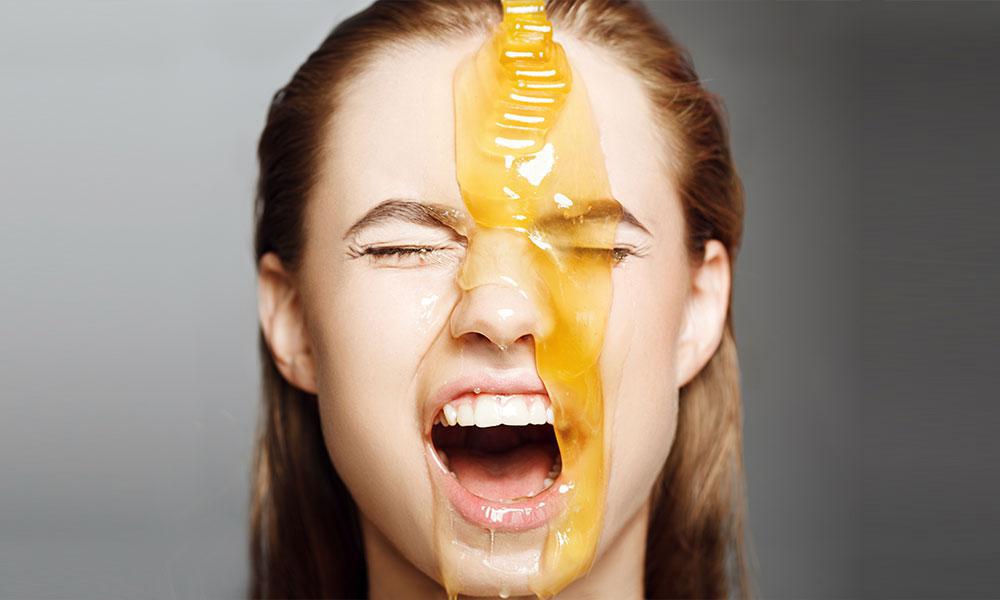The sinuses are small air-filled spaces located in our skull. These air pockets are split into frontal sinuses, located on the forehead, the ethmoid sinuses, located on the sides of the nose, and maxillary sinuses, situated on the cheeks. Healthy sinuses are naturally free of bacteria and other microorganisms. Mucus can usually come out, and air can circulate through them freely. Manuka Honey Sinus can be the answer to your problems!
However, under conditions of increased mucus production, such as colds or allergies, these spaces can become blocked, leading to the proliferation of microorganisms. These microorganisms include bacteria, viruses, or fungi. This proliferation of pathogenic organisms is responsible for infection and inflammation of the sinus mucosa. One thing you can do is Manuka Honey Sinus Rinse, which helps clear the passages with antibacterial elements of Manuka from New Zealand.
There are many allopathic drugs for the treatment of sinus infection such as antibiotics, steroids, and anti-inflammatories. However, many of these treatments only provide temporary relief, and sometimes may lead to the appearance of side effects. For this reason, many people believe that the best treatment is prevention.
Today, more people have chosen to turn to the use of natural treatments to treat conditions such as sinus infections and to prevent their occurrence. Among these treatments is the use of manuka honey for sinuses infections.
Which Are The Benefits of Manuka Honey to Help Prevent and Possibly Help The Body Overcome Sinus Infections?
Manuka honey has extraordinary antibacterial, immunological, antioxidant, anti-inflammatory, and digestive properties. In addition to the hydrogen peroxide that is present in other kinds of honey, manuka honey contains other important components. Its healing properties are due to three main components existing in this honey. The higher the concentration of these components, the greater its antibacterial activity. These components are:
- Methylglyoxal (MGO) is the component that gives this honey its antibacterial power capable of attacking the most antibiotic-resistant bacteria.
- DHA, a type of omega-3 fatty acid, with which it contributes to lower the levels of both chronic and local inflammation.
- Leptosperin is the nectar of the flowers of the Manuka tree.
How To Use Manuka Honey for Sinus Infection
The Unique Manuka Factor (UMF) is a classification system that uses a scale of 5 to 20 to rate the manuka honey antibacterial strength. This system uses the levels of these three components present in manuka honey. The higher the number of UMFs, the stronger the antibacterial properties. To be considered a type of honey with some antibacterial power, it must contain at least one UMF greater than 10.
Moreover, it is important to emphasize that manuka honey reinforces the immune system, which helps to prevent the occurrence of infections. A boosted immune system will be in a better position to fight off any infection. The perfect idea to help clear your sinus infection is the use of manuka honey sinus rinse recipe.
Manuka Honey Sinus Rinse ENT (Ear Nose Throat Doctor)
Ear Nose Throat Doctors may mention that how to use manuka honey for sinus with a neti pot could have potential health benefits. It is also worth mentioning that this honey improves the regeneration of tissues and inhibits the growth of bacteria in them due to its low moisture content.
Manuka Honey seems to be the most effective in helping to treat conditions affecting the respiratory system thanks to its powerful antimicrobial and antiviral properties. This honey is very suitable for treating medical conditions such as common colds, flu, pulmonary bronchitis, sinusitis, and asthma.
As a preventive measure, it is recommended to take a couple of spoonfuls of manuka honey every day, either alone or to sweeten herbal teas.

